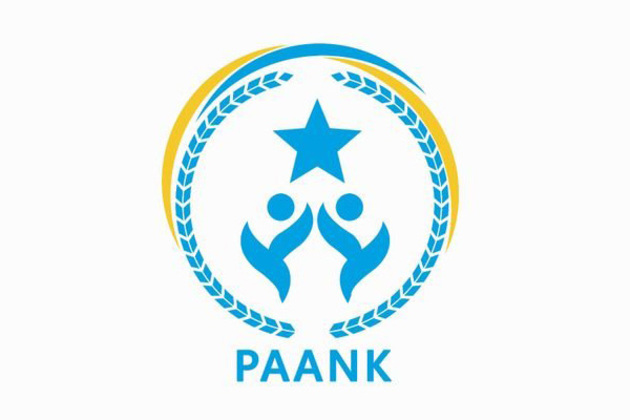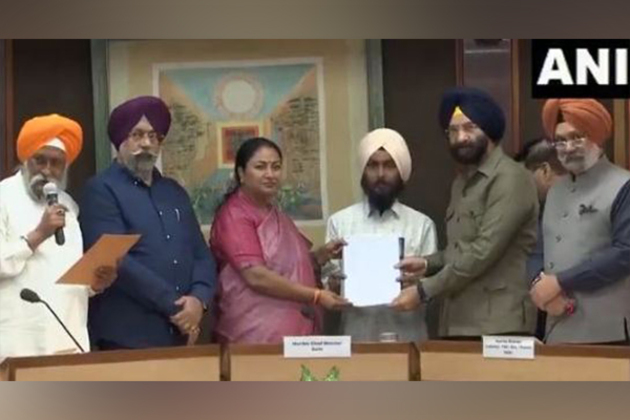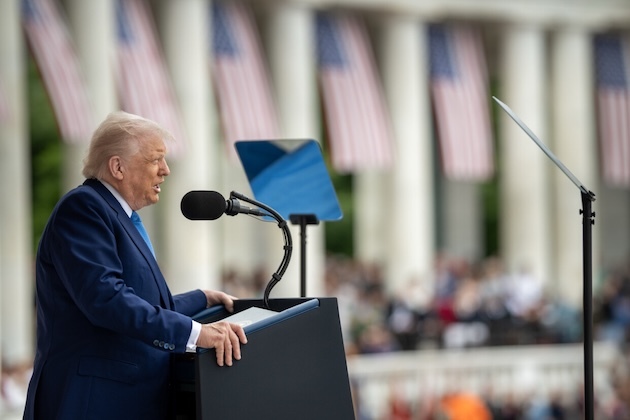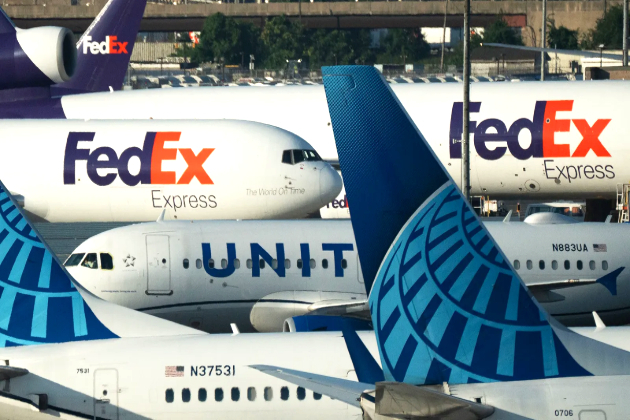In Burkina Faso healthcare is free only for some: why this is a problem
The Conversation
01 Dec 2021, 00:11 GMT+10
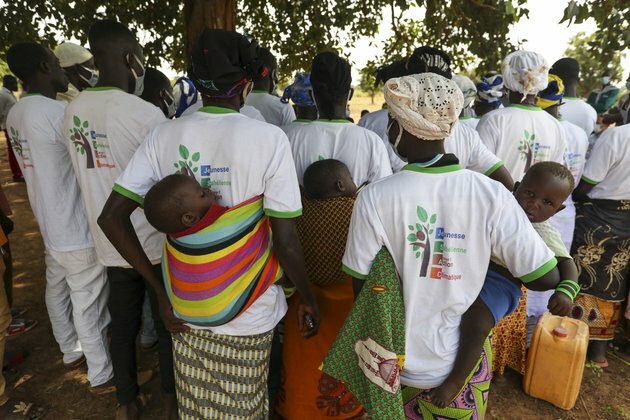
Maternal and child mortality remains a major public health problem in low- and middle-income countries. The rates are especially worrying in poor countries like Burkina Faso. Financial barriers to access care still prevent many families from getting the services they need, when needed, limiting future progress in reducing high mortality rates.
In 2006, Burkina Faso took various measures to improve financial accessibility to maternal and child healthcare. It introduced the policy of subsidising emergency obstetric and neonatal care. This reduced the price of reproductive healthcare services by 80%.
Ten years later, the country went further. It introduced a national free healthcare policy. This applies to all children younger than five - regardless of the reason for the consultation - and reproductive care such as deliveries, pre- and post-natal consultations and caesarean sections.
Studies in Burkina Faso and other sub-Saharan African countries have shown the positive impacts of free healthcare. These policies improve access to healthcare, decrease catastrophic health spending and reduce health inequities. Free access to healthcare reduces self-treatment practices as well as the proportion of home deliveries.
Evidence suggests that the abolition of direct payment improves certain morbidity indicators and reduces neonatal mortality.
Despite these numerous studies, little knowledge has been gathered on the ethical issues surrounding free policies. Exploring these issues is important. There have been reports of increased tensions because the eligibility criteria can be difficult to meet. This is especially the case in contexts of high vulnerability.
We conducted a study in a rural health district (Boulsa) of Burkina Faso to explore what healthcare personnel and beneficiaries thought about compliance with the eligibility criteria. We also wanted to understand the resulting ethical issues, and how health workers and patients coped with these.
Ethical issues
All study participants were aware of the free healthcare policy. But some ambiguities remained about the eligibility criteria. For example, some mothers were unsure whether they were entitled to free postpartum care. The official limit (free postpartum care up to 42 days after delivery) was difficult to understand.
Similarly, some caregivers thought that free care included children aged 5 years, while it only concerns children aged 0-59 months. There was also a lack of knowledge that free healthcare was universal for children, in other words it covered all types of care, but not for the mothers, for whom only reproductive healthcare services were free. These ambiguities led to situations where patients were denied free care when they thought they were entitled to it.
Health personnel and mothers told us about deliberate practices to extend the benefits of free care to people who were not eligible.
One of the most commonly reported practices was to hide the exact age of children. This practice sometimes resulted in impersonation, when identification documents of another child under 5 were brought in as proof of age.
Another example was using an eligible person to receive a free consultation or medication for the benefit of someone else. Also, beneficiaries sometimes went to several different health centres to accumulate a larger supply of drugs, either to treat other family members or to build up a stockpile of drugs that could be used later.
These practices are risky because the treatment given to one person is not necessarily the same as the treatment that another family member should have. However, they are justified by the economic vulnerability of the households. Many women who are the primary caregivers have no control over the household's finances.
Moreover, the ineligibility of older children raises ethical issues.
Healthcare workers knew these issues. They saw the lack of agency of the beneficiaries and were sensitive to the households' economic vulnerability. This situation placed them in an ethical dilemma: they had a duty to treat and relieve the suffering of patients, but also to ensure that the official guidelines issued by the Ministry of Health were respected.
Clinicians were confronted with these dilemmas in an even more blatant manner since they often resided in the community and shared the living conditions of its members.
Healthcare workers found various ways to alleviate these ethical tensions and avoid conflicts with the community. They tried to make people aware of the dangers of giving medications to people other than those for whom they were prescribed, and they were flexible about cut-off points for eligibility. They adapted their procedures to limit circumventing practices, for example by directly observing the treatment administration and ensuring a closer follow-up of the patients.
Remaining gaps
Access to healthcare has improved for a significant proportion of the Burkinabe population. But financial barriers remain for those who are not eligible. This raises ethical concerns for caregivers in the most vulnerable households and for healthcare providers.
Practices and medical procedures were adapted to reconcile these tensions surrounding the eligibility criteria. These resulted in a local reinvention of the free healthcare policy. This made it more effective in real world conditions.
The partial removal of user fees is better than no removal at all, which raises even more important ethical issues. However, it is necessary to realise that the cost burden for healthcare has not evaporated for Burkinabe households. Rather, it has shifted to other categories of household members who are overlooked and continue to be ineligible for many public health interventions, such as children over five years old.
Authors: Thomas Druetz - Assistant Professor of Global Health, UniversitУТЉ de MontrУТЉal | Frank Bicaba - Researcher and PhD candidate, Aix-Marseille UniversitУТЉ (AMU) 
 Share
Share
 Tweet
Tweet
 Share
Share
 Flip
Flip
 Email
Email
Watch latest videos
Subscribe and Follow
Get a daily dose of Mexico Star news through our daily email, its complimentary and keeps you fully up to date with world and business news as well.
News RELEASES
Publish news of your business, community or sports group, personnel appointments, major event and more by submitting a news release to Mexico Star.
More InformationLifestyle
SectionVolvo Cars steps up partnership with Google to make Android software
GOTHENBURG, Sweden: Volvo Cars is stepping up its collaboration with Google to become the lead development partner for Android automotive...
Thug Life: Song 'O Maara' out now
New Delhi [India], May 27 (ANI): 'O Maara' song from Kamal Haasan and Silambarasan TR-starrer 'Thug Life' has been unveiled. Composed...
How pace excellence, nostalgia and 'Supla' shots sealed MI a playoffs spot
New Delhi [India], May 27 (ANI): Five-time champions Mumbai Indians (MI) will be playing the eliminator in the Indian Premier League...
Update: 5 killed, 6 missing in east China chemical plant explosion
JINAN, May 27 (Xinhua) -- Five people were killed and six others were missing as of 7:25 p.m. Tuesday following the explosion at the...
Paank condemns extrajudicial killing of Ghous Bakhsh in Balochistan, urges international probe into state violence
Awaran [Pakistan], May 27 (ANI): Paank vehemently denounced the extrajudicial killing of Ghous Bakhsh, a resident of Malar Kahn in...
Delhi CM, Minister Sirsa hand over job letters to family members of 1984 anti-Sikh riot victims
New Delhi [India], May 27 (ANI): Delhi Chief Minister Rekha Gupta and Minister Manjinder Singh Sirsa on Tuesday handed over job appointment...
International
SectionForeign students at Harvard bear the brunt of White House ban
BOSTON, Massachusetts: U.S. President Donald Trump's administration has taken away Harvard University's right to enroll international...
God responsible for his presidency, claims Trump
WASHINGTON, DC - U.S. President Donald Trump on Monday said he believed God was behind his election loss in 2020, even though he has...
Passenger traffic plummets at Newark Airport amid travel disruptions
NEW YORK CITY, New York: Passenger numbers at Newark Liberty International Airport in New Jersey have dropped sharply, according to...
EU probes Visa, Mastercard fees amid antitrust scrutiny
BRUSSELS, Belgium: European Union antitrust regulators are examining fees imposed by payment giants Visa and Mastercard, Bloomberg...
US Army to list only birth sex in transgender soldiers' records
WASHINGTON, D.C.: The U.S. Army plans to change the records of transgender soldiers to list only their sex at birth, according to a...
US FAA orders flight reductions at Newark Airport to ease congestion
WASHINGTON, D.C.: The Federal Aviation Administration (FAA) said this week that it will require airlines to reduce the number of flights...





